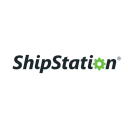How This Father-Son Combo Built A $9M/Year Dietary Supplement
Hello! Who are you and what business did you start?
My name is Patrick Sullivan Jr. I’m the Chief Entertainment Officer (CEO) and co-founder of Jigsaw Health, a dietary supplement company that my dad and I started together in 2005, and then “re-booted” in 2015.
Jigsaw Health is bridging the gap between health and entertainment by providing the highest quality dietary supplements that money can buy, while providing “edu-tainment” — educating consumers on how they can improve their health, in a fun and entertaining way.
Since 2005, we’ve been developing science-based dietary supplements, including MagSRT®, America’s #1 Time Release Magnesium Supplement. (With over 1,300 reviews on Amazon, MagSRT® has 6 times more 5-star reviews on Amazon than the next brand of time-release magnesium.)
In 2018, MagSRT® was evaluated in the Scottsdale Magnesium Study, a placebo-controlled, human clinical trial of 91 participants, published in the peer-reviewed Journal of the American College of Nutrition.
(For some context on this, every dietary supplement uses “clinically tested”...



















